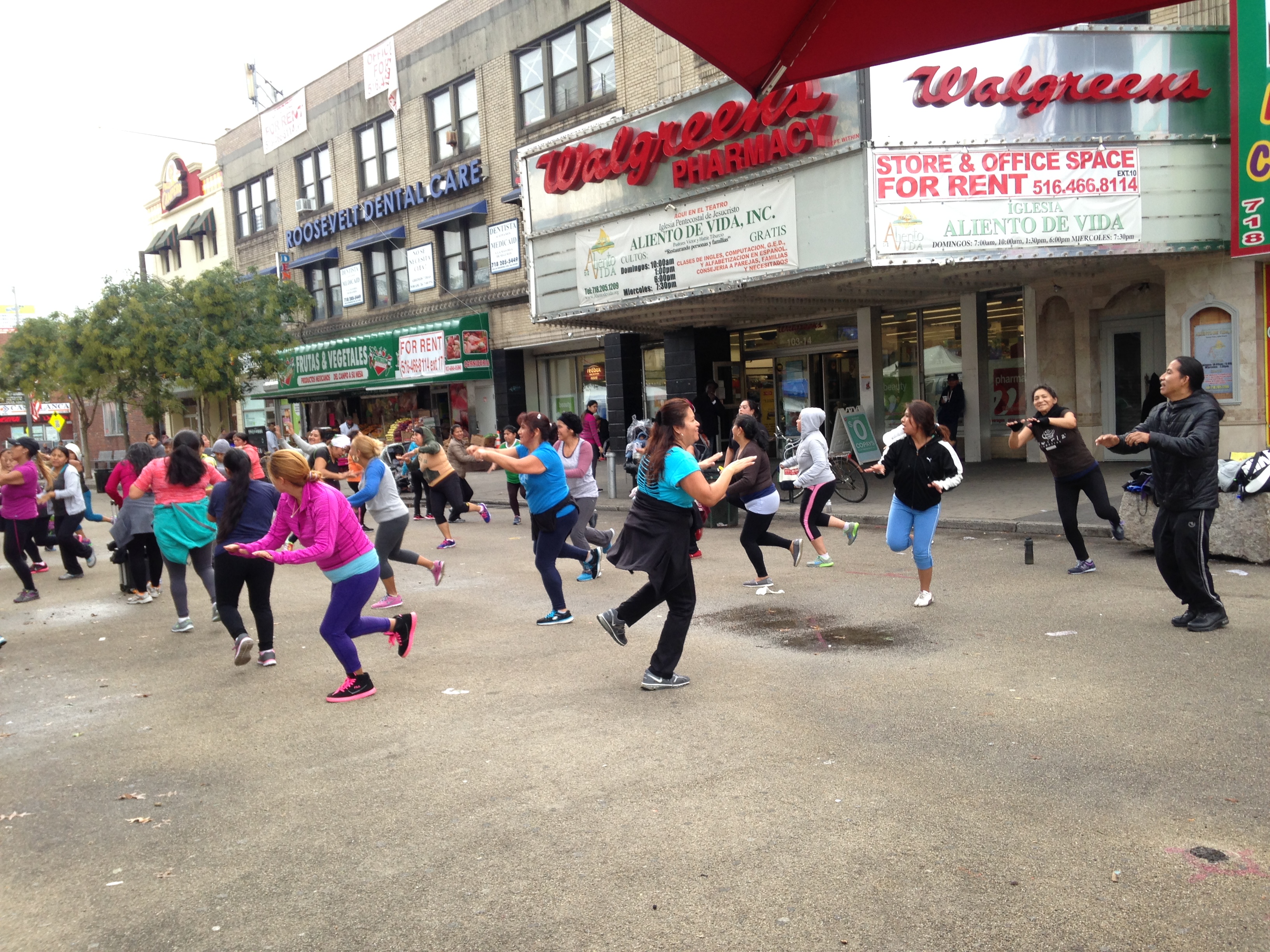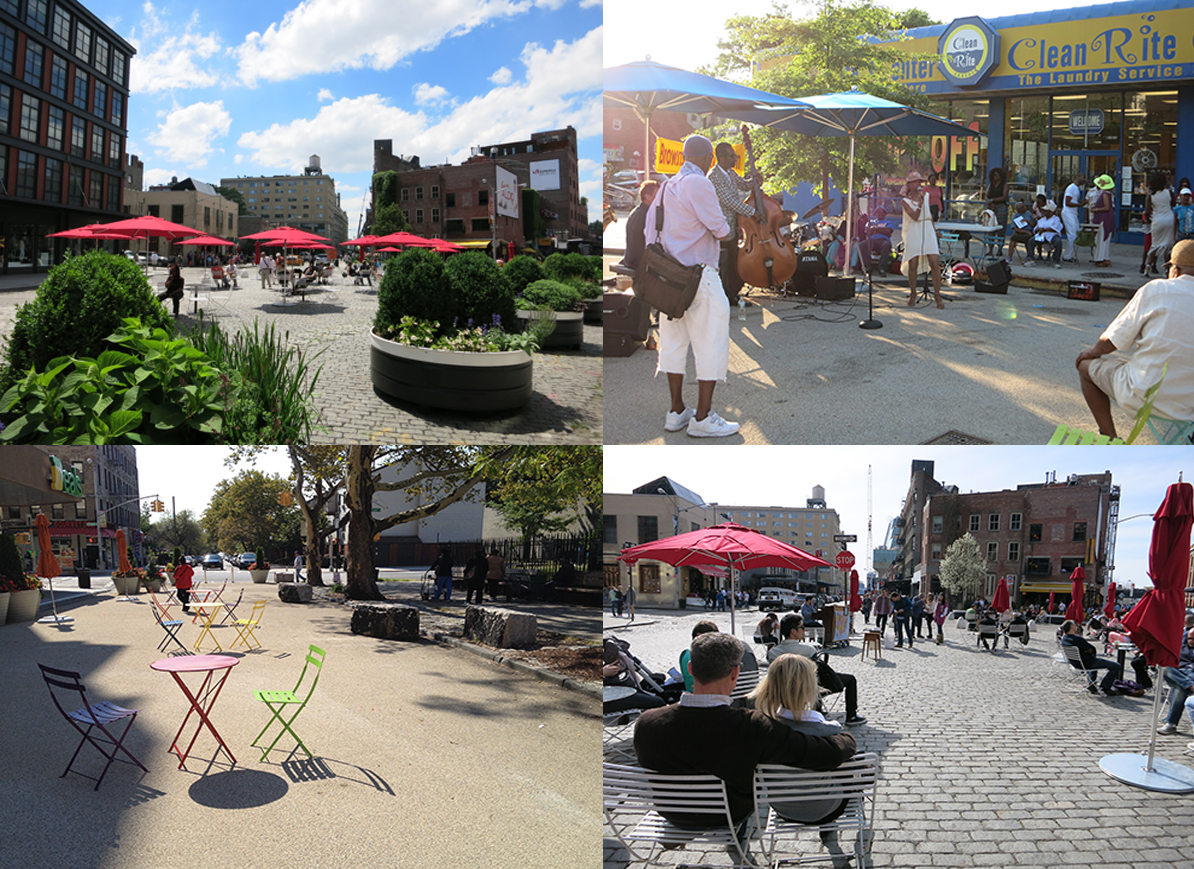
A conversation with Julia D Day and Ewa Westermark about NYC’s Plazas and Gehl’s ongoing evaluation of their social impact.
Ewa Westermark and Julia D Day each played integral roles in Gehl’s New York City work. Ewa conducted the initial 2007–2008 analysis of the City’s public life and space, and developed recommendations that influenced the creation of the NYC Department of Transportation’s (DOT) plaza program. Julia managed a follow-up research collaboration with the J. Max Bond Center on Design for the Just City (JMBC), to learn more about the social impacts in plazas. The findings are published in Public Life and Urban Justice in NYC’s Plazas.
JULIA D DAY: Many studies show that quality public spaces contribute to economic development. What is valuable about also understanding the social impact of public spaces?
EWA WESTERMARK: Meeting places strengthen trust in communities and allow people from different cultures and socioeconomic backgrounds to meet or see each other. How this happens is seldom measured. So how can cities know if the public spaces they invest in actually have the desired impacts? Just creating a public space does not necessarily mean that the space is inviting to a wide variety of people from different backgrounds.
JDD: What stands out most from the 2015 study about NYC plazas?
EW: That plazas are great local assets! Plazas are placed where people already are—where people go to and from work, wait for public transport, do everyday shopping. The plazas have a positive impact on people’s everyday life and are not just destination spaces to use occasionally for special events.

where urban leaders from multiple sectors can collaborate to improve
quality of life. RIGHT: Gehl Institute Partner and Director Ewa Westermark
focuses on consulting with cities by developing Public Life and Public
Space Strategies, Public Space Plans, and Masterplanning Frameworks
and Guidelines that inform the quality of places.
JDD: One of the most creative aspects of the Plaza Program is that it repurposed existing road space into public space, all with an initial investment from the City of under $100,000. This was the first program of its kind in the US and inspired other cities to reimagine their streets. What’s next?
EW: The findings from our recent work show we can explore new metrics and indicators for social mixing and social inclusion in order to understand more about public spaces’ impact on social sustainability. At the same time, plazas can act as a platform to engage with the local communities, where they are.
JDD: Plazas should be created in neighborhoods lacking open space, as is currently done. In 2015, we learned that, in addition to encouraging people to spend more time outside, plazas facilitate social interaction and make people feel safer. Moving forward, they should also be created with an eye towards other impacts, such as increasing civic engagement, calming vehicular traffic, and addressing Vision Zero goals.

JDD: Gehl had the rare opportunity to evaluate the built work instigated in NYC. What are the differences between what you hoped would happen in 2008 and what you learned today?
EW: Overall, I am most impressed with how much has been accomplished—70 plazas created since 2008, across the five boroughs! The immediate use of the new public space speaks to how vital everyday spaces are to local public life, reflecting how much New Yorkers are in need of more and better public spaces.
Our initial study with the City focused on five neighborhoods, and the first flagship projects were along Broadway. Today, just seven years later, the plazas have been implemented across the entire city, and the initiative has had a wider impact than expected. The transformation of Times Square put public space reclamation on the map. Turning a street into a plaza in NY got the world’s attention. More and more cities want to learn and implement the "measure, test, refine’" method. Cities are learning to pilot and test as a way to help people experience something new, evaluate change, and inform longer-term, often more costly, designs. ![]()

